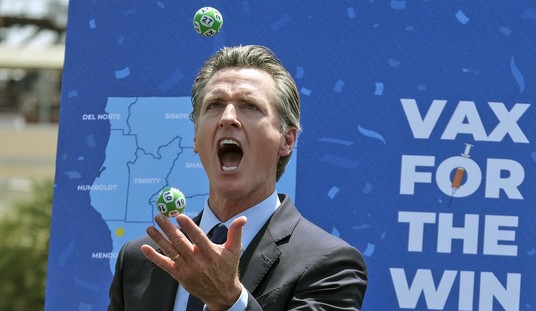Yesterday, Real Clear Politics published an article titled “Geithner To Ryan On Debt: We Don’t ‘Have A Definitive Solution To Our Long-Term Problem’.” It contained the following exchange between House Budget Committee Chairman Paul Ryan and Treasury Secretary Timothy Geithner during a House hearing on the president’s budget:
“Ryan: Here’s the point, if you’ll allow me. This is your time, so we’ll just take a long time. Here’s the point. Leaders are supposed to fix problems. We have a $99.4 trillion unfunded liability. Our government is making promises to Americans that it has no way of accounting for them. And so you’re saying yeah, we’re stabilizing it but we’re not fixing it in the long run. That means we’re just going to keep lying to people. We’re going to keep all these empty promises going.
And so what we’re saying is, in order to avert a debt crisis — you’re the Treasury Secretary — if we can’t make good on our bonds in the future, who is going to invest in our country? We do not want to have a debt crisis. And so it comes down to confidence and trajectory. Do we have confidence that we’re getting our fiscal situation under control, that we’re preventing the debt from getting at these catastrophic levels?
If we go back to the preceding chart, number 13, you’re showing that you have no plan to get this debt under control. You’re saying we’ll stabilize it but then it’s just going to shoot back up. So my argument is, that’s Europe. That is bringing us toward a European debt crisis because we’re showing the world, the credit market’s future seniors — people who are organizing their lives around the promises that are being made to them today — that we don’t have a plan to make good on this.
Geithner: Mr. Chairman, as I said, maybe we’re not disagreeing in a sense. I made it absolutely clear that what our budget does is get our deficit down to a sustainable path over the budget window.
Ryan: And then they take back off.
Geithner: Why do they take off again? Why do they do that?
Ryan: Because we have 10,000 people retiring everyday and healthcare costs going up.
Geithner: That’s right. We have millions of Americans retiring every day, and that will drive substantial further rise in the growth of healthcare costs. We’re not coming before you to say we have a definitive solution to our long-term problem. What we do know is we don’t like yours.”
In a nutshell, President Obama’s proposed solution to our rapidly escalating deficit and debt problems is to “tax the rich.” He’s in full campaign mode right now crisscrossing the country and telling people that the reason the U.S. is in a financial bind is that the wealthy among us don’t pay their fair share in taxes. Geithner is the president’s spokesman. He has to defend Obama’s plan as best he can before the House and Senate, but as you can see from this exchange, the president’s own budget data shows that raising taxes on the rich will not solve our debt and deficit problems.
That should come as no surprise. Tim Cavanaugh, managing editor of Reason.com and a columnist for Reason‘s print edition, wrote about it on Tuesday in an article titled “Top 1 Percent Pay 37 Percent of Income Taxes.” In the article, he presented an IRS table that revealed these facts:
- In 2009, the top 1% of taxpayers paid 36.7% of federal income taxes. They earned about $344,000.
- In 2009, the top 5% of taxpayers paid 58.7% of federal income taxes. They earned about $155,000.
- In 2009, the top 10% of taxpayers paid 70.5% of federal income taxes. They earned about $112,000.
- In 2009, the top 25% of taxpayers paid 87.3% of federal income taxes. They earned about $66,000.
- In 2009, the top 50% of taxpayers paid 97.7% of federal income taxes. They earned about $32,000.
- In 2009, the bottom 50% of taxpayers paid just 2.3% of federal income taxes. They earned less than $32,000.
From this data, it should be obvious that the U.S. does have a “fairness problem” as the president suggests, but it’s not the one he’s trumpeting. Our real “fairness problem” is that half of Americans pay nothing to support the federal government, and that problem is getting worse by the day. According to a May 4, 2011 article in The Atlantic, the percentage of Americans who pay no federal income taxes has increased to 51%.
Cavanaugh concludes by saying that IRS data suggests that taxing the so-called “rich” — meaning people who make more than $340,000 a year — “will not achieve the fiscal goal of raising more revenue.” Judging by reliable historical data, he is correct. According to Nick Gillespie, editor-in-chief of Reason.tv and Reason.com,
“TaxProf Blog points to a Wall Street Journal piece by W. Kurt Hauser showing a hard fact that has yet to sink in on most budget-balancers: Since World War II, federal revenue as a percentage of GDP hasn’t budged much from a bit shy of 19 percent. Regardless of tax rates and what have you, that’s the amount the feds have been able to collect.
[…]
Any budget plan based on revenue being better than 19 percent of GDP is just blowing smoke.”
In his article, Gillespie included the following graph. It originally appeared in American Thinker on September 26, 2009:
Date sources: top marginal rates from the IRS, Historical Table 23, federal revenue 1930-2002 from US Statistical Abstract, Historical Statistics, federal revenue 2003-07 from US Statistical Abstract, Table 451.
This graph shows how remarkably stable over time federal income tax revenue has been despite wide fluctuations in marginal tax rates. Believing as President Obama says he does that raising marginal tax rates now will somehow defy historical evidence and logic and lead to higher federal income tax revenue is ludicrous.
That leads me to conclude that our president isn’t really interested in solving our debt and deficit problems. His primary concern, and I would argue his only priority, is to win a second term in office. To do that, he’s playing a class warfare game that can have serious consequences. If you doubt that, think about what’s happening in Greece right now and imagine the same kind of thing happening here.
Don’t think for one second that it can’t happen here. Occupy Wall Street is just a step away from violent protests in major cities across the fruited plain. One word from their champion, Barack Obama, is all it would take to get the ball rolling. Would he do something that foolish? I’ll answer that question with another question. Is he misleading the American people about the fairness issue?
Neil Snyder is a chaired professor emeritus at the University of Virginia. His blog, SnyderTalk.com, is posted daily.











Join the conversation as a VIP Member